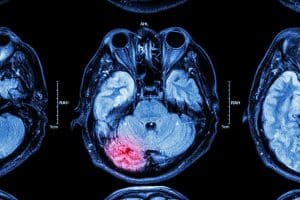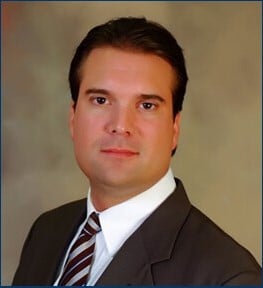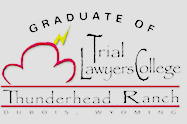 While some car accidents cause injuries like broken bones and cuts and bruises that heal with time, many Southaven car accidents can cause catastrophic injuries, such as spinal cord damage and traumatic amputations that never fully heal. One very common type of catastrophic injury is a traumatic brain injury (TBI). TBIs are often life-changing injuries that permanently affect the car accident victim and everyone in their family. Serious TBIs require a lifetime of medical care and treatment with many different types of healthcare providers.
While some car accidents cause injuries like broken bones and cuts and bruises that heal with time, many Southaven car accidents can cause catastrophic injuries, such as spinal cord damage and traumatic amputations that never fully heal. One very common type of catastrophic injury is a traumatic brain injury (TBI). TBIs are often life-changing injuries that permanently affect the car accident victim and everyone in their family. Serious TBIs require a lifetime of medical care and treatment with many different types of healthcare providers.
Why TBIs are a common car accident injury?
A traumatic brain injury is a forceful blow to the head or skull. According to the Mayo Clinic, a traumatic brain injury can result in bleeding, bruising, and torn brain tissue. Some TBIs may be fatal.
Car accidents can cause TBIs in different ways. A few of these ways include the following:
- Direct impact. A driver or passenger strikes different parts of the car, strikes other passengers, or a part of the vehicle strikes the driver or passenger. The occupant may crash into a steering wheel, a dashboard, a window, a door, the driver, a front-seat passenger, and back-seat passenger, or the seat. In severe accidents, a driver or passenger may be ejected from their car and strike the hard asphalt, another vehicle, or a roadside object. If a car rolls over, the roof of the car can crush an occupant’s head. In high-speed accidents, airbags may deploy in such a way as to damage the brain of a passenger.
- Indirect impact. A traumatic brain injury can occur even if the head doesn’t strike another object in the car or outside the car. The sheer force of the impact can cause an occupant to suffer a TBI due to physical forces on the head. For example, if you are in a car when the driver quickly slams on its brakes, while your body stops, your brain may keep moving, causing the brain to strike the skull. This impact may be followed by a rebound injury (called a contrecoup injury) where the brain hits one side of the skill and then bounces back until it strikes the opposite side of the skull.
- Whiplash injuries. While it’s common to think that whiplash injuries cause neck damage, whiplash injuries can also cause severe brain damage. Whiplash injuries can damage the nerve cells and fibers of the brain and nervous system, causing a condition called diffuse axonal injury. This disorder can cause severe impairment injuries.
- Secondary TBIs. Some Southaven car accident victims who suffer a traumatic brain injury may suffer secondary TBIs, which may evolve in the hours or days after the primary TBI. Secondary TBIs, according to Johns Hopkins Medicine, include various stages of chemical, blood vessel, tissue, and cellular damage that can add to the damages caused by the primary TBI
Physicians diagnose TBI based on physical observations, responses to various stimuli, diagnostic tests, and additional factors. A TBI injury is classified as mild, moderate, or severe based on whether the car accident victim lost consciousness, how long the victim lost consciousness, and other factors.
Victims of mild TBIs often recover with competent care within a few weeks or months. Victims of moderate and severe TBIs often require a lifetime of care.
What are the types of symptoms and complications of TBI?
According to Johns Hopkins Medicine, car accident victims who have a traumatic brain injury may have the following symptoms and complications:
- Cognitive impairments. These disorders may include coma, a shortened attention span, amnesia, confusion, difficulty solving problems, decreased awareness of other people, and other problems.
- Motor impairments. These disorders may include paralysis, spasticity, problems with balance, reduced endurance, weakness, swallowing problems, and poor coordination.
- Perceptual or sensory deficits. These challenges include difficulty understanding where the victim’s limbs are in relation to their body, vision difficulties and other sensory changes, and loss of or heightened sensation of certain body parts.
- Communication challenges. These deficits may include problems speaking or understanding speech, problems with reading and writing, a decreased vocabulary, and other impairments.
- Functional problems. These challenges may include problems with daily living tasks, difficulty driving a car or operating machinery, and problems with paying bills and organization.
- Social challenges. Southaven car accident TBI victims may have difficulty making and keeping friends and understanding the “nuances of social interaction.”
TBI victims may also suffer from dizziness, headaches, tiredness, insomnia, and loss of bladder or bowel control. Other challenges may include apathy, anxiety, depression, irritability, and other personality changes.
How are traumatic brain injuries treated in Southaven?
While brain cells don’t regenerate themselves, there is some evidence, according to Johns Hopkins Medicine, that sometimes the brain can recover in other ways. These ways may include “rerouting information and function around the damaged areas.” Younger people are more likely to see improvement than older people.
The recovery process for a TBI generally revolves around learning to live and adjust to the limitations of the TBI. TBI care focuses on helping the car accident victim improve physically, socially, and emotionally.
Car accident victims who have a TBI will often need a lifetime of care with many different types of healthcare providers – which is why you need a skilled personal injury lawyer on your side who understands how to show what type of care will be necessary, the cost of that care, and the complications that may arise.
Some of the healthcare providers you or a loved one may need include:
- Neurosurgeons and neurologists
- Physiatrists
- Internists
- Nurses
- Physical therapists
- Occupational therapists
- Speech therapists
- Psychiatrists and psychologists
- Nutritionists
- Audiologists
- Recreational therapists
- Respiratory therapists
- Social workers
- Other healthcare professionals
TBI treatment programs include acute and subacute rehab, long-term rehab, transitional living, behavioral management, day treatment, and independent living programs.
At Taylor Jones Taylor, our Southaven car accident lawyers work with your doctors and our independent network of doctors to verify your TBI and show every way your injuries are affecting every aspect of your life or the life of your loved one. We’re skilled at showing how much you’re suffering, the cost of your medical care, your lost income, and all other injuries and damages you have. We represent car accident victims throughout Olive Branch, Southaven, and Hernando. To assert your right to hold another driver accountable for your traumatic brain injury, call us today or fill out our contact form to schedule an appointment.

Benjamin L. Taylor is a lifelong resident of DeSoto County and has distinguished himself in the area of products liability and personal injury law. He has a reputation as a fierce advocate for his clients and has obtained millions of dollars in verdicts and settlements over his career. He has been listed in the publication Super Lawyers of the Mid-South in the area of product liability. To learn more about Mr. Taylor, please refer to his biography page.




